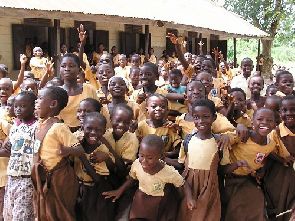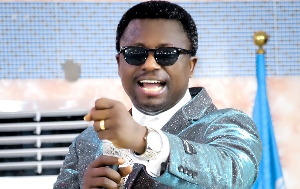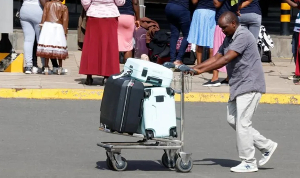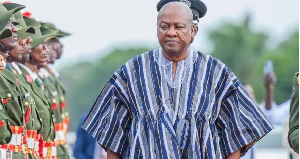The Executive Director of Ghana National Council for Private Schools (GNACOPS), Enoch Kwasi Gyetuah, says sexuality education in its right cultural context will help remove the learning barriers in sexual education in Ghana.
Adding his voice to the ongoing debate on the Comprehensive Sexuality Education (CSE) purported to be introduced by the Ministry of Education in the new school curriculum, he said, “We as Ghanaians and private school operators will gladly accept a carefully thought-through CSE because we know it will be beneficial to the up-and-coming generation, especially at a time when the world’s notion of sexuality is gradually taking a culturally inappropriate form.”
Speaking to the DAILY HERITAGE, the director said, “the CSE, if well packaged, must be embraced by all Ghanaians and teachers must also be encouraged to teach it so that it will enlighten our children to have a better understanding of the topic as well as the world’s view of sexuality.”
He expressed the view that, “Although Ghanaians are diverse in terms of ethnicities, cultures, religions and the like, each culture has carefully laid-down rules governing the people’s mindset about sexuality. Issues of sexuality are an age-old phenomenon as times change and new developments emerge.
“There is the need to teach our children to be a positive part of such development, such as in crafting a structure in terms of the pedagogy that will be used in facilitating the lessons for the children as well as the content level in relation with the ages and classes of the children. We should be critically be guarded by the tenets of the various cultures in our country.”
“What it means is that each class or stage will require a specific measured content that the children are supposed to be taught which will bring them to the right level of understanding and enlightenment about sexuality in line with their cultural principles,” he stated.
He continued that in as much as Ghanaians wanted their children to be emboldened like children in the developed countries such as the United States, France and other European countries, where children as young as four and five years are assertive and can stand and demand their rights, the older generation should not lose sight of the fact that it should be done in an enhanced cultural environment.
“It is true that we live in a global village and want our children to be part of that big village; however, we must train the children to not imbibe other cultures at the expense of theirs.
A people whose development is greatly hinged on the culture of others are zombies and worse than the dead,” he stated.
Mr Gyetuah said he was puzzled as to why in the days of old issues like teenage pregnancy, abortion, and rape were strange news in the communities, adding, “what did the grandparents do right in terms of sexuality education?”
He suggested that rather than abandoning the whole idea of introducing the CSE, the country could take up the principles guiding it and enhance them to help expose the present day Ghanaian children to holistic view of sexuality.
“This will help prevent early sex and teenage pregnancies and also coach them to understand the implications of being careless with issues of sexuality,” he said.
Mr Gyetuah referred to the Holy Bible and said lack of knowledge would make people perish and so advised that if the children got better understanding of their sexes and sexuality, it would go a long way to help them so that no one could take advantage of them.
The Executive Director readily accepted the fact that some of the traditional practices were not compatible with the present day society and that education had come in as a major critical tool to reform these negative indigenous practices but “we should not, under the guise of globalisation, lose sight of the fact that there are a lot of good lessons and principles in the indigenous way of doing things. This is first and foremost what should guide us in taking critical decisions such as the CSE for the upcoming generation.”
Going forward, the director asked how the proposed guidelines for the CSE were obtained, asking if extensive stakeholder consultations were done and whether the populace were aware of the contents.
“Are the contents culturally appropriate? Have teachers been well trained to implement it? Is the mind-set of the society psyched enough for the implementation?” he asked.
He said in an era when all manner of weird behaviours, in term of sexuality, were coming up in the developed world, Ghanaians should be careful not to condemn our children to the evils of the ever-growing Lesbianism, Gay, Bi-sexual and Transgender (LGBT) but rather give them the culturally appropriate education that would make them stay away from such negative sexuality behaviours.
The Director asked the Ministry of Education to give the guidelines to the National Council for Curriculum and Assessment, who will, in turn, do the necessary consultations to develop a document that would be appropriate culturally and academically for the Ghanaian society.
He said, “This will calm down the nerves of all the well-meaning Ghanaians and allay their fears. This will be better than the blame games, accusations and shifting of goal poles they are currently engaged in.”
He also asked the Ministry to be more focused on their core mandate of formulating better education policies such as the new curriculum and be seen to be giving proper education, especially at this moment when the new educational curriculum is being implemented.
General News of Thursday, 10 October 2019
Source: starrfm.com.gh
CSE will remove learning barriers – Private Schools
 School children (File photo)
School children (File photo)












